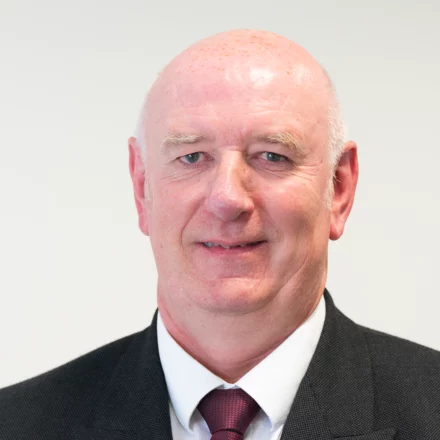
Mother accused of parental alienation wins appeal over psychological assessment by an expert
Introduction to parental alienation
Parental alienation is commonly described as a child’s unjustified hostility towards or rejection of one parent, for no reason other than that they have been manipulated, whether consciously or unconsciously, by the other parent.
Parental alienation and the use of ‘experts’ to diagnose it has been in the news recently, following the case of Re C (‘Parental alienation’; Instruction of Expert) [2023] EWHC 345 Fam, in which the court accepted the opinion of an unqualified ‘psychologist’ that the mother had alienated the children from the father, and ordered that the children should live with the father: (link to case: https://www.bailii.org/ew/cases/EWHC/Fam/2023/345.html). An instructive article considering the case of Re C be found here: https://becket-chambers.co.uk/2023/06/27/guidance-on-unregulated-psychologists-instructed-as-experts-re-c-parental-alienation-instruction-of-expert-2023-ewhc-345/
Re: C
The case of Re C was significant because it set out new guidance from Sir Andrew McFarlane, President of the Family Division, applicable to similar cases. Re C has now been considered by the High Court in another case Re GB (Part 25 Application: Parental Alienation) [2023] EWFC 150. (Link to Re GB https://www.bailii.org/ew/cases/EWFC/HCJ/2023/150.html).
This article considers how Re C was applied in the case of Re GB.
In Re C set out the following principles to be applied in similar cases where the permission of the court is sought to instruct an ‘expert’:
- There is no proper definition of an ‘expert’ in Family proceedings, except in rule 23.2(c) of the Family Proceedings Rules 2010 (‘FPR 2010’), which says that an “expert” means a person who provides expert evidence for use in proceedings.
- There are certain statutory exceptions to the term “expert” for Cafcass Officers, Local Authority officers and adoption agency staff, set out in s13(8) of the Children and Families Act 2014 [‘C+FA 2014’].
- Expert evidence will only be permitted in children proceedings if the court is of the opinion that the evidence is “necessary” to assist the court to resolve the proceedings justly: s13(6) C+FA 2014].
- An “expert” witness’ opinion will only be admissible on any relevant matter on which s/he is qualified to give expert evidence: s3 of the Civil Evidence Act 1972 [‘CEA 1972’]. The term ‘qualified’ is not defined in the CEA 1972.
- The question of whether an “expert” is qualified to give expert evidence is a matter for the court in each individual case: s3 CEA 1972.
- The instruction and role of experts in the Family Court is governed by the Family Procedure Rules 2010.
- Whilst certain categories of psychologist have a protected title (e.g. clinical psychologists), the title “psychologist” is not protected, and may be used by an individual regardless of their regulatory status.
Re GB
In summary, the facts of Re GB (Part 25 Application: Parental Alienation) [2023] were that there were two children, aged nine and 12, who live with their mother, and had only indirect contact with their father. The father accused the mother of alienating their children against him.
During proceedings before the District Judge, the court heard “expert” evidence from Dr L, who had carried out the psychological assessment of both parents. Dr L identified that the mother did not have a mental health disorder, but felt the need to protect herself from the father. Whereas the father was considered by Dr L to have limited insight into his ability to think reflectively and empathetically about his children. It was suggested by Dr L that the father might use coercive anger to manage his feelings about relationships, and Dr L recommended psychodynamic therapeutic work for him.
In addition to Dr L’s psychological assessment of the parents, the Court had before it reports from a Child and Family assessment prepared by the Local Authority, a section 17 assessment for the provision of support services by a local authority, a section 7 welfare report from Cafcass, and two additional welfare reports from Cafcass. The Court also conducted a fact-finding exercise in the course of parallel proceedings under the Family Law Act 1996. All of this was before a decision was made by the District Judge for the children to be joined as parties and a rule16.4 Guardian appointed to represent them independently of the parents.
After the father claimed the mother had alienated their children from him, the children’s guardian filed an application for new expert evidence. The District Judge agreed the application to assess the family, against the objections of the mother, and made an order permitting the instruction of a new expert, a psychologist, and approved a set of questions for the expert to answer in their report. One such question asked the new expert to examine whether either parent had tried to alienate the children, and if yes, to comment on the impact of that on the children, and set out what work the parents would need to undertake to remedy any such negative influence, as well as the timescales and cost of such work.
The mother appealed the decision to instruct the expert, and won her appeal on the basis that disputed factual matters are for the court to decide, not experts, overturning the District Judge’s direction to instruct a psychological expert,.
Giving judgment on the appeal, Judge Middleton-Roy said the District Judge of the Family Court was wrong to invite the expert to undertake a psychological assessment of the parents and their two children, and wrong to make such an order despite objections without giving proper reasons for overruling those objections. Judge Middleton-Roy said, “the expert was being invited to provide an opinion about parental alienation. In the judgment of this court that is outside the expert’s remit” adding that “it is the court’s function to make factual determinations necessary to inform welfare decisions for the child, not to delegate that role to an expert.”
Allowing the mother’s appeal, Judge Middleton-Roy said the District Judge had been wrong to order the expert assessment according to guidance in Re C, in which the Association of Clinical Psychologists-UK (ACP-UK) had observed that, whether or not parental alienation had actually taken place was a question of fact, and that “parental alienation” like domestic abuse, was not a syndrome capable of being diagnosed. The ACP-UK had complained about the use of unregulated experts, who describe themselves as specialists in parental alienation.
Judge Middleton-Roy noted that no facts had been found by the court on the issue of parental alienation, and that the experienced District Judge had failed to consider a number of factors, and failed to give a reasoned judgment.
Parental alienation “experts” in the family court have given rise to concerns that the concept was being used as a litigation tactic by perpetrators of domestic abuse, with the result that children were removed from their mothers. The case of Re GB marks a welcome step away from the growing use of ‘experts’ who advertise themselves as specialising in parental alienation, whose involvement in family courts to resolve disputed allegations has proven problematic.
I am only doing suggestions and please feel free to ignore but it is helpful for the audience to have sub-headings so they can skip to the point they need or if a LiP can understand what the issue you’re covering is.
